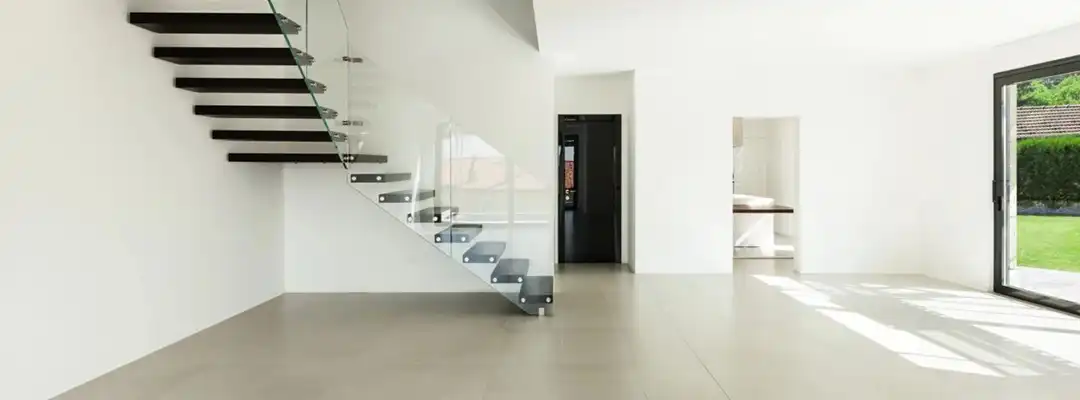Choosing the right flooring for your home is a critical decision that affects its aesthetics, functionality, and value. With a multitude of options available, homeowners often find themselves navigating a maze of materials, styles, and considerations. This guide aims to simplify that process, providing a thorough overview of popular flooring types, their advantages, nuanced details, and the role of a general contractor in your flooring project.
Hardwood Flooring: A Timeless Choice
Pros:
Aesthetic Appeal: Hardwood floors offer unmatched natural beauty, elevating the look of any room.
Durability: Properly maintained, they can last for decades.
Value: Hardwood floors can significantly increase your home’s resale value.
Versatility: Comes in various species, finishes, and styles to complement any decor.
Considerations:
Cost: Higher upfront cost but considered a long-term investment.
Moisture Sensitivity: Prone to warping in humid conditions; not recommended for bathrooms or basements.
Refinishing: Can be sanded and refinished multiple times to renew its appearance.
For hardwood flooring, the process begins with acclimating the wood to your home’s environment, preventing future warping or gaps. A general contractor ensures the subfloor is level and dry, lays down an underlayment for moisture control and sound insulation, and then precisely installs each plank, securing them via nailing, stapling, or gluing down, depending on the specific type of hardwood and the subfloor material.
Laminate Flooring: Affordability Meets Style
Pros:
Cost-Effective: Mimics the look of more expensive flooring at a fraction of the cost.
Durability: Resistant to scratches and dents, making it suitable for high-traffic areas.
Easy Installation: The click-and-lock design facilitates DIY projects.
Considerations:
Water Resistance: Not as water-resistant as vinyl, making it less suitable for wet areas.
Refinishing: Cannot be refinished like hardwood.
Installing laminate flooring involves preparing the subfloor to ensure it’s flat and clean. The contractor will lay an underlayment to absorb sound and provide a moisture barrier. Laminate planks, designed to interlock, are then clicked together over the underlayment, allowing for a floating floor system that expands and contracts without buckling. This method simplifies replacement and removal without damaging the subfloor.
Vinyl Flooring: Versatile and Water-Resistant
Pros:
Water Resistance: Excellent choice for kitchens, bathrooms, and laundry rooms.
Durability: Stands up to heavy foot traffic.
Comfort: Softer and warmer underfoot compared to tile or wood.
Variety: Available in a wide range of designs, including those that mimic wood and stone.
Considerations:
Environmental Impact: Choose newer, phthalate-free options for better indoor air quality.
The installation of vinyl flooring starts with a thorough assessment of the subfloor for any imperfections, as vinyl can highlight subfloor irregularities. The process may involve using a self-leveling compound for a perfectly smooth surface. Depending on the type of vinyl (sheet, plank, or tile), the contractor will either glue down the material or use a click-lock system for floating floors, ensuring a tight seal that maximizes water resistance and durability.
Ceramic and Porcelain Tile: Elegance and Durability
Pros:
Water-Resistant: Ideal for moisture-prone areas.
Low Maintenance: Easy to clean and stain-resistant.
Design Flexibility: Wide range of colors, patterns, and sizes.
Considerations:
Installation: Professional installation recommended due to complexity.
Comfort: Hard and cold underfoot, which might require rugs or heated floors for comfort.
Tile installation is meticulous, requiring a clean, level subfloor. A general contractor applies a layer of thin-set mortar, laying tiles with precision spacing to ensure uniform grout lines. Once set, the spaces between tiles are filled with grout, and the entire area is sealed to protect against moisture and staining. This method requires skill to ensure tiles are aligned and the finished surface is flat and beautiful.
Natural Stone Flooring: Luxurious and Unique
Pros:
Beauty: Each piece is unique, adding elegance and character to your home.
Durability: Extremely durable and long-lasting.
Value: Can increase the resale value of your home.
Considerations:
Cost: One of the more expensive flooring options.
Maintenance: Requires sealing to prevent stains, especially in porous stones like marble.
Like ceramic and porcelain tile, natural stone installation demands a perfect subfloor, but it also requires additional considerations due to the variability in stone thickness and size. After laying down a bed of mortar, each piece of stone is carefully placed and leveled. The inherent uniqueness of stone means the contractor often sorts through pieces to find the best fit visually. Sealing is a crucial final step to protect against stains and moisture.
Bamboo and Cork Flooring: Eco-Friendly Choices
Pros:
Sustainability: Made from renewable resources.
Comfort: Cork is warm and comfortable underfoot, while bamboo offers the hardness of hardwood.
Aesthetic Appeal: Unique textures and patterns can complement any interior design.
Considerations:
Durability: Both materials can be susceptible to scratches and moisture damage, although proper finishing can mitigate these issues.
Bamboo flooring is typically installed similarly to hardwood, with methods including floating floors, nailing, or gluing. Cork, often sold in tiles or planks, can also be installed as a floating floor or adhered to the subfloor with glue, especially in sheet form. Both materials require an underlayment for moisture protection and comfort. A general contractor will ensure the underlayment is suitable for the specific material, providing a stable base that enhances the flooring’s durability and feel underfoot.
Conclusion:
Understanding the installation process for each flooring type highlights the importance of professional expertise. A general contractor’s role is pivotal in ensuring that your flooring is not only aesthetically pleasing but also correctly installed for longevity and performance.
At Flooring, Kitchen & Bath Design, we pride ourselves on being your premier general contractors, with over 30 years of dedicated service across Orange County, CA. Our expertise extends beyond a comprehensive range of flooring services; we are also specialists in kitchen and bathroom remodeling, designed to transform your space into a reflection of timeless elegance and unparalleled functionality. Whether you’re drawn to the warmth of hardwood, the resilience of vinyl, or the unique beauty of natural stone, our mission is to guide you through each phase of your renovation journey. Our aim is to ensure the result not only meets but exceeds your expectations. From flooring to kitchen and bath renovations, let us help you make a lasting impression with a home that perfectly encapsulates the essence of your style and functional needs.

